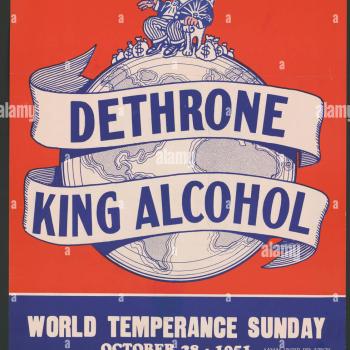In 1947 future Christianity Today editor Carl Henry wrote The Uneasy Conscience of Modern Fundamentalism. This rebuke of his heritage’s cultural isolationism helped jumpstart the neo-evangelical movement headlined by Billy Graham, Fuller Theological Seminary, and the National Association of Evangelicals. In 1955 John Howard Yoder, who went on to teach at what became Anabaptist Mennonite Biblical Seminary, wrote of Mennonite participation in the NAE: “I don’t know just what the reason is; whether they think we have money, or are impressed with the quality of our schools, or feel that we really have something to say. At any rate we should use this opportunity while we have it.” A decade later as a young faculty member at Calvin College, the Reformed historian George Marsden wrote an essay entitled “I Am Not One of Us.” These three statements, recounted by historian Molly Worthen in a game-changing monograph on the recent history of evangelicalism, illuminate the movement’s crisis of identity and authority in the mid-twentieth century.
 Marsden and Henry are usual characters in evangelical narratives. Yoder is not. Yet he looms surprisingly large in Worthen’s terrific Apostles of Reason: The Crisis of Authority in American Evangelicalism. Having consulted more than a dozen archives, including the Mennonite Church USA Archives in Goshen, Indiana, Worthen makes a strong case for the inclusion of Yoder and other Mennonites, noting that the theologian used the first-person plural in his many exchanges with Henry, Francis Schaeffer, and Christianity Today editor Kenneth Kantzer. In fact, Worthen betrays a clear affection for Yoder, Mennonites, and other groups (like Wesleyans) who have sometimes appeared to be on the margins of evangelicalism. She portrays Anabaptists as prophets with intellectual chops and a historical tradition with which to challenge the patriotic, big-business neo-evangelical consensus during the Vietnam War. Yoder, Harold Bender, and Ron Sider claimed an evangelical identity in order to rescue that heritage from Constantinianism.
Marsden and Henry are usual characters in evangelical narratives. Yoder is not. Yet he looms surprisingly large in Worthen’s terrific Apostles of Reason: The Crisis of Authority in American Evangelicalism. Having consulted more than a dozen archives, including the Mennonite Church USA Archives in Goshen, Indiana, Worthen makes a strong case for the inclusion of Yoder and other Mennonites, noting that the theologian used the first-person plural in his many exchanges with Henry, Francis Schaeffer, and Christianity Today editor Kenneth Kantzer. In fact, Worthen betrays a clear affection for Yoder, Mennonites, and other groups (like Wesleyans) who have sometimes appeared to be on the margins of evangelicalism. She portrays Anabaptists as prophets with intellectual chops and a historical tradition with which to challenge the patriotic, big-business neo-evangelical consensus during the Vietnam War. Yoder, Harold Bender, and Ron Sider claimed an evangelical identity in order to rescue that heritage from Constantinianism.
On its face this narrative is not new. Many other historians—including Nathan Yoder, Steve Nolt, Perry Bush, Keith Graber Miller, and the authors of The Activist Impulse—have charted how twentieth-century Mennonites left their ethnic enclaves to engage fundamentalism, evangelicalism, the mainline, and Catholicism. But all of these accounts appear in articles and books that center on Mennonites. Worthen is one the first to explore the significant involvement of Yoder, Bender, Sider, and others in a narrative of mainstream evangelicalism itself.
Perhaps this frame is unusual because Mennonite influence has arguably waned. But historical characters did not know how things would turn out. For this reason, Worthen’s insertion of minority Mennonite and Wesleyan voices seems especially helpful. In fact, these voices could have been the leading edge of a road that could have been taken. Mennonites (given their surprising theological cachet in many evangelical institutions) and Wesleyans (given their big numbers) could have been more than the bit players that most scholars of evangelicalism now assess them to be. It was conceivable that, given a more hostile cultural mood toward evangelicals in the 1970s and 1980s, neo-Anabaptists, not Reformed-oriented neo-fundamentalist Christians, could have emerged triumphant (though they surely wouldn’t have used this word!) within an evangelicalism up for grabs.
As it turns out, a lot of Southern Baptists now are ratcheting down their political and cultural ambitions. Some are even calling themselves a “moral minority.” In their rhetoric of separation of church and state, liberty of conscience, and the Church as being set apart from the world, they sound a lot (minus the pacifism) like Harold Bender in The Anabaptist Vision. Apparently we’re all Anabaptists now.
For a full review of Apostles of Reason, with special attention to Worthen’s treatment of Anabaptist-oriented evangelicals, check out the October 2014 issue of Mennonite Quarterly Review.
















